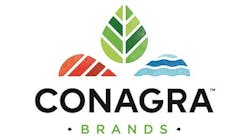In late April of this year, Ferrero USA Inc. announced it settled a class action suit over its marketing of Nutella – the hazelnut spread with skim milk and "a hint of cocoa." Under the terms of the settlement, Ferrero established a $3 million fund for consumers and agreed to change its labeling and advertising practices for the product. The reasons Ferrero agreed to this settlement present a case study in the current risks and pitfalls in marketing processed foods.
Ferrero's marketing and labeling statements for Nutella all were truthful. Nevertheless, the company was forced to defend a lawsuit accusing it of deceptively marketing Nutella as a "healthy" and "nutritious" food. On the surface, this claim may look frivolous, since most people would not view a sweet, chocolaty spread as "healthy." Digging deeper, however, Ferrero had reason to be concerned that a jury, along with the general public, might view its labeling practices as deceptive and misleading.
The overall theme of Nutella's marketing presented the spread as a relatively healthy product, like peanut butter. The front label of Nutella identified it as "hazelnut spread with skim milk & cocoa"; the side panel declared it is "made with over 100 hazelnuts per jar"; and the back label stated it is "an example of a tasty yet balanced breakfast."
Television ads touted Nutella is made with "simple quality ingredients like hazelnuts, skim milk and a hint of cocoa" while the words "no artificial colors or preservatives" appeared on the screen. In addition, Nutella's Internet website and print advertising referenced the product's "wholesome" and "high-quality ingredients" alongside statements like, "Use Nutella spread on all kinds of healthy food – like multigrain toast – to add a touch of flavor and give your kids a tasty breakfast you can feel good about."
According to its nutrition facts label, however, Nutella contains 10.9g of added sugar per serving (close to 55 percent of the overall product) and 2g of saturated fat (from palm oil which creates a nice, spreadable texture). Not surprisingly, the high sugar and fat content of Nutella was not a feature of its branding or marketing message.
The contrast between that message and the actual product resulted in the lawsuit, in which a mother claimed that she "was shocked to learn" that Nutella "was the next best thing to a candy bar." The crux of her claim was that she was "duped" by Nutella's "deceptive and misleading" marketing practices into buying a product she otherwise would not have purchased.
As with similar class action lawsuits, the claims were brought under California law, which rejects the argument that a reasonable consumer cannot be deceived with regard to the contents of a food product simply because the nutrition facts panel identifies the product's ingredients. As the U.S. Ninth Circuit Court of Appeals has stated: "We do not think the FDA requires an ingredient list so that manufactures can mislead consumers and then rely on the ingredient list to corrects those misinterpretations and provide a shield of liability for the deception."
As a result, Nutella knew this lawsuit was likely heading to trial because legal grounds did not exist for the court to rule, as a matter of law, that Ferrero's advertising of Nutella could not mislead a reasonable consumer. Compounding its problems is that Ferrero marketed Nutella as a breakfast food for kids, which increased potential risks and public embarrassment for Ferrero given the present concerns about childhood obesity.
Under the terms of the settlement, Ferrero agreed to set aside $3 million for consumers, who will be able to claim $4 per jar up to a maximum of five jars. Examples of other changes include Ferrero's agreement to remove from its back labels the statement that Nutella is "an example of a tasty yet balanced breakfast" and replace it with "turn a balanced breakfast into a tasty one."
The key lesson from this case is that food manufacturers should carefully analyze the business and legal risks of marketing efforts that imply a product high in calories, added sugars, saturated fats or sodium is healthy or wholesome. As Ferrero learned, even if individual statements are literally true, they can create a collective impression that savvy class action attorneys can label as deceptive and misleading. Even without the risk of a lawsuit, such marketing practices can lead to bad publicity and backlash from consumer groups and social media activists.
Finally, this case demonstrates the potential advantages of complying with the industry-led Facts Up Front labeling system (see www.factsupfront.org), the use of which should dampen the power of the claims filed against Ferrero. In fact, Ferrero has agreed to use this labeling system in the future for Nutella.

